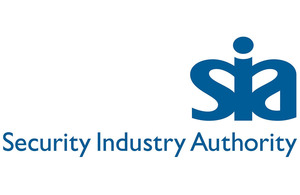Russia’s contempt for international law is clear: UK statement to the OSCE
Thank you, Mr Chair. In Tuesday’s Special Permanent Council, I spoke of the devastating impact of Russia’s illegal invasion on the civilian population of Ukraine and the imperative need for accountability. Today I will focus on the many obligations and commitments Russia has willingly entered into, commitments made to promote trust and open dialogue in the pursuit of peace, to limit unnecessary suffering and protect the innocent from the horrors of war. Commitments which it is failing to meet.
We are now four months into Putin’s barbaric war of choice in Ukraine, and there can be no shred of doubt as to the illegality of Russia’s actions in pursuit of its imperialistic objectives. We recall that on 2 March, 141 countries – an overwhelming majority – voted to condemn Russia’s invasion in the UN General Assembly. As a member of the United Nations, and indeed a permanent member of the United Nations Security Council, Russia has committed to uphold the principles of the Charter of the United Nations. Yet the Russian government’s unprovoked war of aggression against Ukraine has been anathema to these principles. And while the Russian government has tried to distract us with lies and disinformation, including in this room, no amount of spin or false narratives can obscure the truth. Russia alone is responsible for this horrific war, and the resulting needless deaths of thousands. Its contempt for international law is clear.
Just in the last few weeks between the 25 June and the 1 July, at least 46 Ukrainian civilians were killed in three strikes on civilian infrastructure, with many more injured. Time and again, we see violation after violation of international law as Russia indiscriminately deploys munitions against civilians and in residential areas, including thermobaric weapons and heavy artillery. How can President Putin, his government and his military justify the sheer devastation it is causing? How can Russian diplomats defend these actions? In addition, in direct violation of Article 56 of Additional Protocol (I) to the Geneva Conventions, Russia attacked nuclear infrastructure in Chernobyl and Zaporizhzhia, risking the lives of thousands of people, as well as an environmental catastrophe. Targeting any civilian installation, unless it is contributing to the military effort, is illegal, as is targeting civilians. Russia knows this, so our conclusion must be that it simply does not care.
As well as a legal requirement to protect civilians and civilian infrastructure, President Putin and his armed forces must abide by their obligations under the third Geneva Convention; that all prisoners of war should be treated humanely, afforded appropriate medical treatment and basic necessities, and be protected from humiliating and degrading treatment. We strongly condemn the exploitation of Prisoners of War for political purposes. We are appalled by the sham trials and sentences passed upon members of the Armed Forces of Ukraine, who as serving military personnel are entitled to combatant immunity for their participation in hostilities.
Russia’s actions have also shown flagrant disregard for its commitments under the Budapest Memorandum and Minsk agreements. Under the Budapest Memorandum, Russia committed to “refrain from the threat or use of force against the territorial integrity or political independence of Ukraine”. Ukraine entered into the Budapest Memorandum, alongside Russia, in good faith and voluntarily surrendered the world’s third largest nuclear weapons arsenal in exchange for these assurances. We realise now, that Russia had no intention to follow through with the commitments it made. It was never serious about peace.
Mr Chair, by failing time and time again to adhere to its commitments, Russia has isolated itself on the world stage. Russia’s actions are not those expected of the prosperous and modern state which President Putin tells us it is. They are not behaviours that inspire trust and confidence. And they are most certainly not behaviours consistent with OSCE principles and commitments. By contrast Ukraine’s bravery in the face of such aggression has united and fortified the international community’s support. We, together with our partners, call again on Russia to end this illegal war, withdraw its troops from the whole of Ukraine, and to live up to its international obligations and commitments.


